


On this page
Join us at Early Researchers’ Day (ERD) for informative presentations and working sessions planned to be of value to those who are in their first years of research in mathematics education.
The ERD aims to provide early career researchers with opportunities to broaden their research skills, establish new contacts, build networks among themselves and for future PME conferences, and meet and work with international experts in the field.
ERD will be held at the Massey University Auckland Campus on Tuesday 16 July and Wednesday 17 July 2024 prior to the beginning of the PME 47 Conference.
The day is being organised by Tanya Evans (LOC member, New Zealand) and Arindam Bose (PME representative, India).
Registration
Registration fees for the Early Researchers' Day and coffee breaks are complimentary.
Researchers can apply for participation in ERD at the same time as registering for the PME 47 Conference via ConfTool.
There are limited spaces available, priority will be given to current PhD students and post-doctoral students, and special consideration will be given to applicants from underrepresented countries.
Early Researchers‘ Day Programme
-
2.15pm to 2.45pm - Gathering and opening
In person -
2.45pm to 3.45pm - Thematic Lecture 1
In personEmotion Science and Its (Potential) Contribution to Mathematics Education Research presented by Prof James A. Middleton (Arizona State University)
-
3.45pm to 4.15pm - Afternoon tea
In person -
4.15pm to 6.00pm - Workshop 1
In personStructured Networking facilitated by Assoc Prof Arindam Bose (TISS, Mumbai) and Dr Tanya Evans (University of Auckland)
-
6.00pm - Dinner
In person
-
9.30am to 11.00am - Workshop 2
In personQuestionnaires as Measurement Tool in Mathematics Education Research presented by Prof Stefanie Rach (University of Magdeburg)
-
11.00am to 11.30am - Morning tea
In person -
11.30am to 12.30pm - Thematic Lecture 2
In personScientific Writing: Novelty, Methodology and Open Science presented by Prof Stanislaw Schukajlow (University of Münster) and Dr Janina Krawitz (University of Cologne)
-
12.30pm to 1.30pm - JRME and ESM editors‘ panel
In personEditor-in-Chief of Journal for Research in Mathematics Education Prof Pat Herbst (University of Michigan) and Co-Editor-in-Chief of Educational Studies in Mathematics Prof David Wagner (University of New Brunswick)
-
1.30pm to 2.30pm - Lunch
In person
Abstract: Thematic lecture 1
Emotion Science and Its (Potential) Contribution to Mathematics Education Research
The field of emotion research has grown dramatically over the past 60 years. Since the seminal work of Schachter & Singer (1964), showing that emotions can be modelled as cognitive appraisals of one’s inner levels of arousal, we have been able to identify emotional patterns that differ among individuals and across cultures pertaining to mathematics engagement. Far from a small set of basic emotions the tapestry of emotional engagement shows itself to be multifaceted, dynamic, social, and full of opportunities for tailoring mathematics learning experiences to better support students’ engagement. Paradigmatic traditions in emotion research will be discussed including neuroimaging, anthropology and social psychology, mathematics learning, and embodied cognition. The combined body of work in these fields points to an emerging construct that shows great promise for mathematics education: Emotion Regulation.
Presenter: Prof James A. Middleton

Prof James Middleton
James A. Middleton is a Professor of Mechanical and Aerospace Engineering and former Director of the Center for Research on Education in Science, Mathematics, Engineering, and Technology at Arizona State University. Previously, he held the Elmhurst Energy Chair in STEM education at the University of Birmingham in the UK. He received his PhD in Educational Psychology from the University of Wisconsin-Madison in 1992, where he also served in the National Center for Research on Mathematical Sciences Education as a postdoctoral scholar for 3 years.
Dr. Middleton served as Senior co-Chair of the Special Interest Group for Mathematics Education in the American Educational Research Association and as Chair of the National Council of Teachers of Mathematics’ Research Committee. He has served on several task forces for the NCTM, is a regular reviewer for the NSF and the Department of Education, and serves on the Boards of several regional and national-level research centres. He has been a consultant for the College Board, the Rand Corporation, the National Academies, the American Statistical Association, the IEEE, and numerous school systems around the United States, the UK, and Australia.
Jim’s research interests focus on the following areas where he has published extensively: mathematical thinking and reasoning; mathematics teaching; and student engagement in mathematics and engineering. To fund his research, Jim has garnered over $20 million in grants to study and improve mathematics education in urban schools.
Abstract: Workshop 1
Structured Networking
Throughout this session, participants will engage in interactive small-group discussions facilitated by mentors to share their research ideas and explore potential synergies. By participating in this workshop, attendees will gain valuable insights into diverse research areas and methods, and establish meaningful connections with peers from various countries. This structured networking event aims to foster a supportive community where researchers can exchange ideas, seek feedback, and forge collaborations that have the potential to shape future scientific endeavours. Structure Networking is an integral part of ERD tailored for early career researchers seeking to enhance their professional networks and collaborative opportunities.
Facilitator: Assoc Prof Arindam Bose
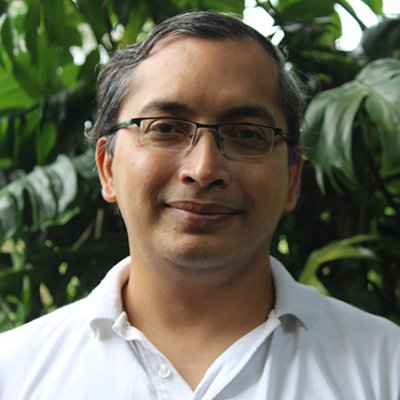
Dr Arindam Bose
Dr Arindam Bose is an Associate Professor at the Centre of Excellence in Teacher Education (CETE), Tata Institute of Social Sciences (TISS), Mumbai and a Collaborative Professor at the Federal University for Sao Paulo (UNIFESP), Brazil. Dr Bose was the Vice President, International Committee (IC) of the International Group of Psychology of Mathematics Education (IGPME), 2021 to 2023, and this is the first representation from India for this position. He is also a member of the International Committee, Mathematics Education and Society (MES). At TISS, Mumbai, he leads the Mathematics Team of the Connected Learning Initiative (CLIx) Project, and he has been the Academic Coordinator of the MA in Education and Integrated BEd-MEd Programmes of TISS, Mumbai from 2018 to 2022 and currently is the Field Attachment Coordinator of these programmes. Arindam holds PhD in Mathematics Education from Tata Institute of Fundamental Research (TIFR), Mumbai and master's degree in Mathematics from University of Pune. He did post-doctoral research at University of South Africa (UNISA) in Pretoria. He taught undergraduate mathematics at Patna University for five years from 2002 to 2007, was involved in the framing of the Bihar Curriculum Framework in 2006 and was also a member of the Bihar Governor’s Core Committee on higher education in 2006.
He has served on several national committees for DEd and BEd course design in India and was part of several International Committees, Surveys, Edited Volumes and Reports on diverse themes which yielded acclaimed publications. Arindam's key areas of interest are Sociology of (Mathematics) Education, language diversity and mathematics learning, number theory and ethnomathematics. He teaches courses ‘Pedagogy of Mathematics’, ‘Child Development, Cognition and Learning’, ‘Culture and Cognition’, ‘History of Education’ and ‘Academic Writing’ at the Masters and Doctoral programmes in Education at TISS and in UNIFESP.
Facilitator: Dr Tanya Evans
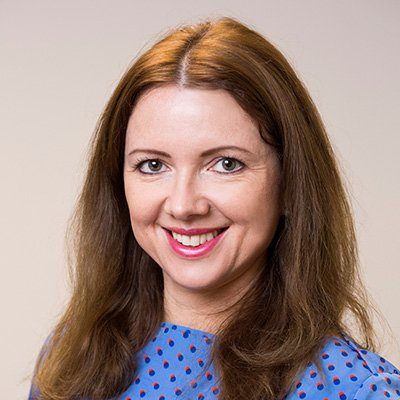
Dr Tanya Evans
Dr Tanya Evans is a senior lecturer and Head of the Mathematics Education Unit in the Department of Mathematics at the University of Auckland. After finishing her undergraduate degree in Mathematics and Education, Tanya was awarded a graduate fellowship at Rice University in Texas, USA, where she completed her PhD in Pure Mathematics with a specialisation in Low-Dimensional Topology. After moving to New Zealand, Tanya's focus shifted towards research in mathematics education. Tanya serves on the Executive Committee of HERDSA (Higher Education Research and Development Society of Australasia), NZ branch and on the International Steering Committee of the DELTA conferences on undergraduate mathematics and statistics teaching and learning. Since 2023, Tanya has served as a founding member of the New Zealand Association for Research in Education (NZARE) Special Interest Group on Quantitative Studies in Education. Its mission is to foster systematic and scientific investigation of educational phenomena and processes.
Abstract: Workshop 2
Questionnaires as Measurement Tool in Mathematics Education Research
For empirical research in mathematics education, questionnaire is a popular measurement tool, which helps to understand personals’ dispositional attitudes and beliefs as well as relevant process measures during learning, problem-solving, or teaching (summarised under the terms learner characteristics and situational perceptions). Drawing on designs and results of actual studies with secondary school and undergraduate students, I will present different research goals that can be achieved by applying questionnaires, including identifying learner characteristics and situational perceptions that influence learning achievement, and analysing the development of characteristics and perceptions in learning processes. We will discuss steps and strategies to arrive at interpretable measurements with questionnaires, from determining the concepts that should be measured by questionnaires, developing and optimising item formulations, deciding on answer formats, composing the items into a questionnaire and determining scale scores. The participants will practice some of these steps with a concrete questionnaire and provided data. Based on this, we will discuss the potential and challenges of applying questionnaires in mathematics education research.
Facilitator: Prof Stefanie Rach
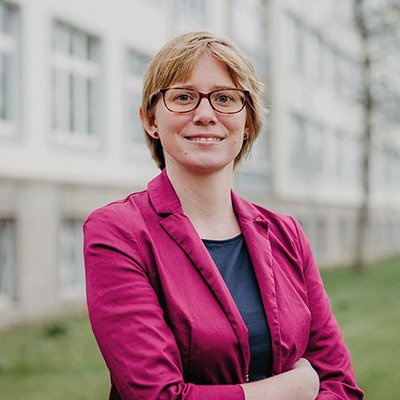
Prof Stefanie Rach
Stefanie Rach is a full professor for mathematics education at the OVGU Magdeburg since 2018. After completing a teacher education programme for upper secondary schools in mathematics and physics at the CAU Kiel and a PhD in mathematics education at the IPN Kiel, she worked at 3 different schools. She then was a junior professor of mathematics education with a focus on university learning processes at the University of Paderborn.
Her research focuses on the following topics:
- the role of cognitive and affective characteristics in mathematical learning processes
- the culture of mathematics as a formal science (with proving as central practice) and an applied science (with modelling as central practice)
- transitions in educational biographies
Beneath teaching of mathematics education at university, Stefanie Rach gets involved in the following activities:
- 2019 to now: member of different committees and expertise teams concerning teaching and learning mathematics, for example, national expertise team for the transition from school to university in mathematics; expertise team for the school quality in Saxony-Anhalt; member of the committee for teaching programs at the OVGU Magdeburg; supporting early career researchers in mathematics education concerning their methodology
- Member of the local organisation team for the 37th PME conference in Kiel (2009) and the national GDM conference in Paderborn (2018)
- 2013 to 2016: Speaker of the group of early career researchers of the society of mathematics education of German-speaking Countries (GDM)
Abstract: Thematic lecture 2
Scientific Writing: Novelty, Methodology, and Open Science
Scientific writing is at the core of research work and is of crucial importance for an academic career. In this lecture, we will discuss the writing process for peer-reviewed scientific journals and how authors can react to the corresponding reviews and comments by the editor. We will also reflect on upcoming important topics in contemporary research in social sciences, such as ethics in research and open science policy.
Presenters: Prof Stanislaw Schukajlow
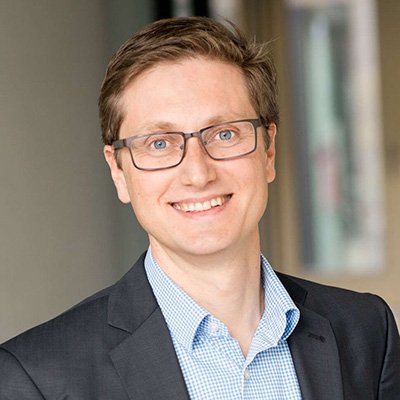
Prof Stanislaw Schukajlow
Stanislaw Schukajlow studied Mathematics, Physics, and Education in Germany and Ukraine. Since 2013, he has held a professorship in Mathematics Education at the University of Münster, Germany. Stanislaw Schukajlow is a member of the editorial boards of leading journals in education and mathematics education such as Educational Studies in Mathematics and Learning and Instruction. He also serves as an associate editor of ZDM – Mathematics Education. His research interests include strategies, motivation, emotions, and teaching methods for mathematical modelling problems.
Presenter: Dr Janina Krawitz
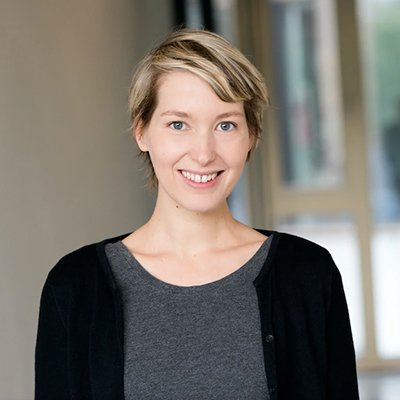
Dr Janina Krawitz
Janina Krawitz studied Mathematics and Art for the teaching profession. She obtained her PhD in 2019 and worked as a post-doc in the lab of Stanislaw Schukajlow at the University of Münster until 2023. From 2023 to 2024, she held an assistant professorship at the University of Paderborn, and since 2024, she has been holding a position at the University of Cologne. Janina Krawitz has published in and reviewed for leading journals in the field of mathematics education such as Educational Studies in Mathematics and ZDM – Mathematics Education. Her research interests involve problem-posing, motivation, mathematical modelling, and strategies.
JRME and ESM editors’ panel
The panel will begin with editors of each journal describing their process for peer review and commenting on trends in their journal. After these brief presentations, the panelists will field questions from participants. For example, we expect you may have questions about what concerns reviewers tend to raise, and about ways to address reviewer concerns.
Panelists: Prof Pat Herbst (University of Michigan) and Prof David Wagner (University of New Brunswick)
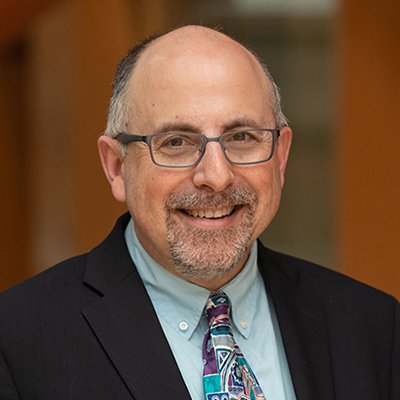
Prof Patricio G. Herbst
Patricio G. Herbst is a Professor of Education and Mathematics at the University of Michigan. His research interests include the practice of mathematics teaching and teaching knowledge with particular emphasis in the teaching of geometry in high school and university. He is also interested in the use of multimodal representations of teaching practice in teacher collaboration and learning and the semiotic analysis of such uses. Between 2021 and 2025 he is serving as Editor of the Journal for Research in Mathematics Education.
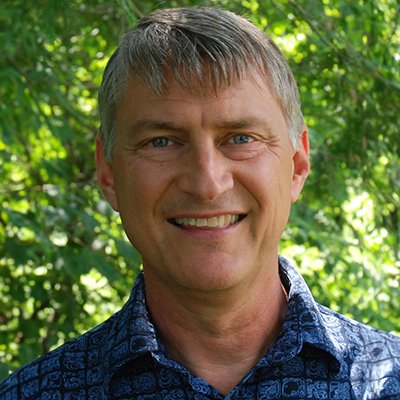
Prof David Wagner
David Wagner is a professor in mathematics education and Associate Dean of Education at the University of New Brunswick. He serves as Co-Editor-in-Chief of Educational Studies in Mathematics. He is interested in human interaction in mathematics and mathematics learning and the relationship between such interaction and social justice. His research has focused on positioning and authority structures in mathematics classrooms, teaching approaches that support sustainability, and ethnomathematical conversations in Indigenous communities. He has taught Grades 7–12 mathematics in Canada and eSwatini.


